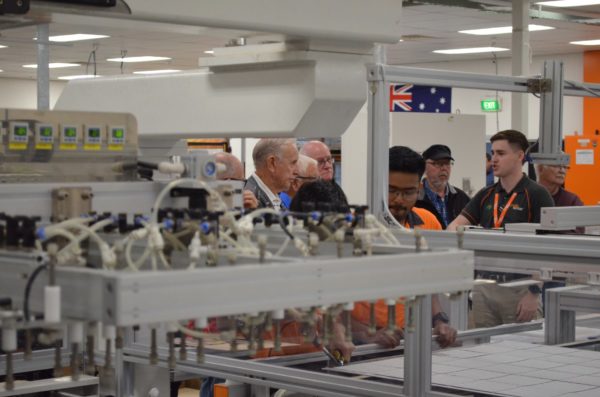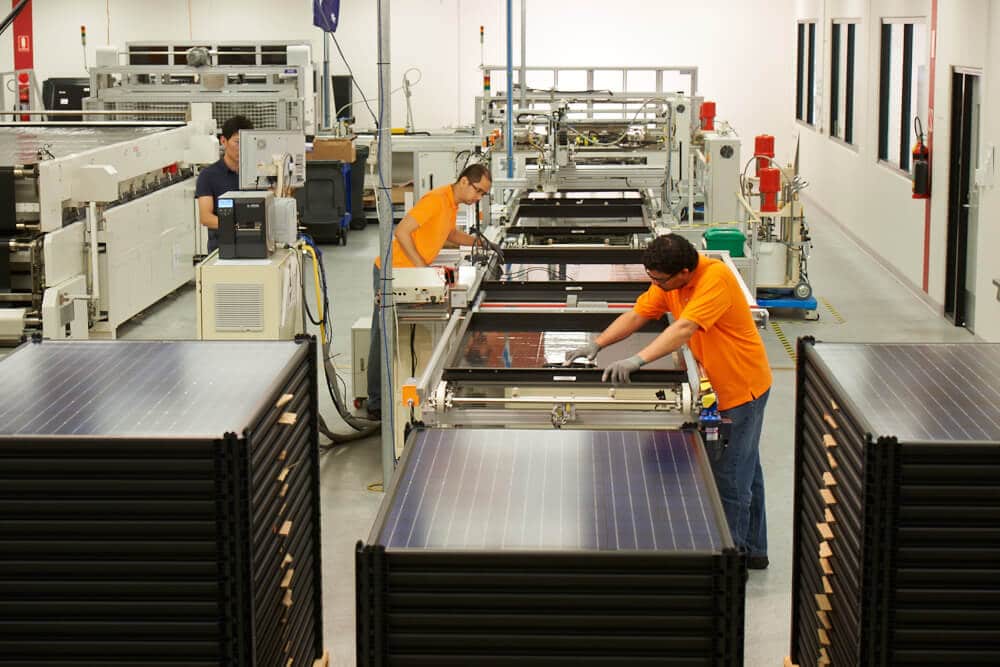With solar module prices surging due to increased raw material and shipping costs, coupled with China’s lingering energy crisis, many Australian installers are reportedly having trouble delivering on their project commitments.
The situation has led Australia’s only manufacturer of solar modules, Tindo Solar, to release a stockpile of 1000 panels to the wholesale market. The Adelaide-based company says it opted to release the stocks “to help installation companies who are facing the prospect of cancelling their pre-Christmas installs because they can’t access China-sourced panels.”
“We’ve been fielding calls for more than a month, with solar installation companies desperate for panels,” Tindo Solar’s Chief Executive Officer, Shayne Jaenisch, said. “Not only are they faced with not enough panels to fulfil their installations, but the panels they can buy are 30 to 50% more expensive than they were mid-year.”

Image: Tindo Solar
Jaenisch said installers are being warned by wholesale panel suppliers that the current conditions will get worse, a sentiment mirrored by One Stop Warehouse’s Head of Product Procurement and Marketing, Andy Cheng, who told pv magazine Australia last month that prices would continue to rise into 2022.
China is the world’s largest solar supplier, dominating not only panel manufacturing but the entire upstream supply chain. Which means the ramifications of the country’s energy crisis combined with shortages of polysilicon and price hikes for solar glass, aluminium and other materials (which have risen between 9% to 35% since the first quarter of the year) have been felt globally.
Australia, as Cheng noted, is in a particularly delicate position though, competing for stock against Europe and the United States – both of which are far bigger markets and better able to absorb the pricing turbulence. Adding to that, Australia doesn’t have what one would call a diversified portfolio – sourcing around 80% of its solar panels from China, according to the Clean Energy Regulator.
One of China’s largest solar manufacturing companies, Longi, said it is working to secure supply to Australia. According to the Managing Director of the company’s Australian arm, Stephan Zhang, Longi’s vertical integration has allowed it to weather the current storm better than smaller outfits.
Longi recently refocussed on its longterm partnership with One Stop Warehouse, Australia’s largest solar distributor, saying it had signed an agreement with it to guarantee a significant supply of solar modules to Australia in 2022.
Longi said it was able to do so because it creates all of the key components that go into its modules, rather than purchasing them from third party suppliers. As such, it said, Longi Solar Australia is able to make sure that they have enough stock for their Australian customers.
Coming back to Tindo Solar, Jaenisch said as Australia’s only manufacturer, the company has received an “overwhelming number of enquiries” as industry turns to it for stock. In response, Tindo is releasing 30 Pallets (33 panels per pallet) of its Karra330P modules. The wholesale-only release includes a 25-year product warranty at the standard pricing of $221.10 per panel ($0.67 per watt). Jaenisch said Tindo Solar is already looking at further release of 500 panels, given the demand.
Tindo Solar is currently in the process of commissioning its new factory in Adelaide which will have almost three-times the output of its old factory, if only it were ready now!
This content is protected by copyright and may not be reused. If you want to cooperate with us and would like to reuse some of our content, please contact: editors@pv-magazine.com.









4 comments
By submitting this form you agree to pv magazine using your data for the purposes of publishing your comment.
Your personal data will only be disclosed or otherwise transmitted to third parties for the purposes of spam filtering or if this is necessary for technical maintenance of the website. Any other transfer to third parties will not take place unless this is justified on the basis of applicable data protection regulations or if pv magazine is legally obliged to do so.
You may revoke this consent at any time with effect for the future, in which case your personal data will be deleted immediately. Otherwise, your data will be deleted if pv magazine has processed your request or the purpose of data storage is fulfilled.
Further information on data privacy can be found in our Data Protection Policy.